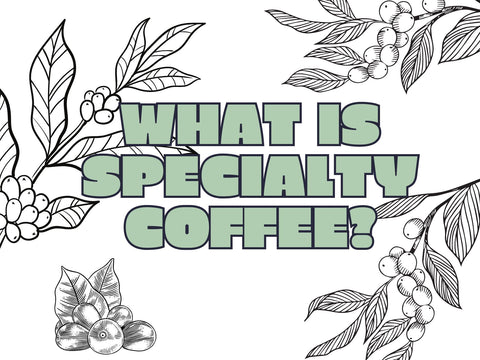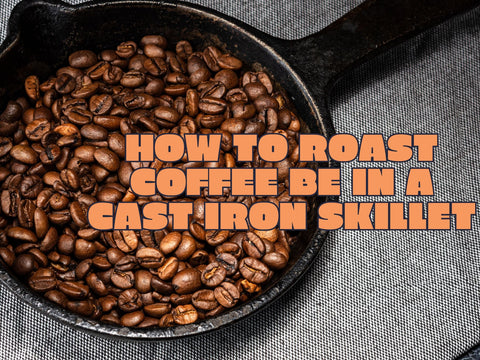Specialty coffee has turned into a global cultural phenomenon.
It’s not only great for coffee lovers but also helps farmers to make more profit on their beans (which basically results in them getting a fairer price), invest in better equipment, and pay their workers a fair wage.
If you kept your eye on the world of coffee, you probably noticed that the demand for high-quality, specialty-grade coffee has increased significantly. But what’s special about specialty coffee, and is it worth the price?
In this article, we take a brief look at the history of specialty coffee, the meticulous specialty coffee grading process, the significance of growing regions, and the global popularity of high-quality coffee.
History of Specialty Coffee
While high-quality coffees have been around for a long time, the roots of what we call specialty coffee today can be traced back to the early 20th century. And it might not be surprising that some fancy French people can be found at the story's beginning.
Customers of fancy places like the Hotel du Crillon in Paris enjoyed coffees from specially selected micro-lots from Guatemalan coffee farms and demanded more of the like. That’s when the focus on micro-lots and “special” coffees became more prevalent.
It wasn’t until the 1970s, however, that the term “specialty coffee” was coined by the coffee trade journal.
Coincidentally, this happened not long after Starbucks opened its first Starbucks store (in 1971, in Seattle). In the following decades, the specialty coffees market grew and offered the world an exciting selection of particularly great coffees.
Specialty Coffee Grading Sheet and Coffee Grading

Specialty coffee is objectively defined by a score of 80 points or above on the Specialty Coffee Association's 100-point scale. The grading process meticulously evaluates various factors to rate coffee quality. This includes a visual inspection and cupping.
Visual inspection includes counting defective beans (e.g. broken beans) in a batch. A coffee will only be called a specialty coffee if it has zero primary defects and fewer than five secondary defects.
Cupping is a sensory evaluation method that looks at the coffee's attributes like acidity, body, flavor, and aroma. Specialty bean cupping involves roasting and brewing only coffees that try to achieve the official specialty grade on the 100 point scale.
It’s important to note that grading systems differ from country to country.
Each coffee-growing region emphasizes distinct criteria, which is an interesting reflection of the diverse cultural and environmental influences on coffee production.
Various attempts exist to create a unified grading method, but we’ll look at coffee grading in a dedicated article as this is a more complex topic.
Growing Regions of Specialty Coffee
Specialty coffee is cultivated in the same specific regions that also grow “ordinary coffee”, i.e. the coffee belt. However, within these regions, some areas offer close to perfect conditions for coffee cultivation.
Most major commercial coffee-producing countries contribute to the specialty market, but certain regions stand out, e.g. countries like Ethiopia, Kenya, and Colombia. When someone talks about specialty coffee, they will often refer to coffees from these countries.
However, some lesser-known regions like Panama have recently also impressed the world with their commitment to producing the highest quality beans while also taking great care of their country’s biodiversity.
Popularity of Specialty Coffee
The Coffee Farmer
It all starts with the coffee farmer. After all, if none were interested in growing specialty coffee, then the story of specialty coffee would come to an end pretty quickly.
So what makes specialty coffees attractive to coffee farmers, considering there’s so much that needs to be considered and that it’s not easy to get permission to call your coffee a specialty coffee?
It’s fairly simple: Specialty coffees bring in more money, and also more recognition. For coffee farmers in suitable growing regions, focusing on specialty coffee is a great way to earn more money which can be used to improve their farms and pay fair wages to workers. Specialty coffee farmers are often also known for their more ethical approach to coffee farming.
The Green Coffee Buyer
The green coffee buyer is a vital link in the coffee chain and distribute coffee beans all over the world. Green coffee buyers love the specialty coffee bean because it allows them to offer something special to their customers - while also making more money. Specialty coffee beans are something every green coffee buyer wants to offer to their customers.
The Coffee Roaster
Roasters are responsible for transforming green coffee beans into specialty-level roast profiles. While every roaster can try their hand at roasting specialty coffees, it takes skills and attention to detail to get it right. It’s easy to ruin a perfectly fine batch of specialty beans if you don’t know what you’re doing.
The roasting process requires extensive knowledge and experience to ensure the final roasted beans preserve the coffee's inherent characteristics. While this, of course, also means more work for a roaster, it doesn’t diminish the popularity of specialty coffees in a roaster’s eyes: Offering specialty coffees doesn’t only make a roaster stand out but also attracts more customers.
The Coffee Consumer
Coffee drinkers reap all the benefits from the hard work that goes into producing great specialty coffees for the coffee market. They complete the specialty coffee lifecycle and are the reason why farmers, green coffee buyers, and roasters put in all the work to create the highest quality coffee.
Coffee consumers like you and me enjoy specialty coffee for its interesting flavor profiles and incredible quality.
The consumers’ choices impact the market and are the reason why specialty coffee shops and roasters have become more prevalent. This leads us to the question:
Where is Specialty Coffee Most Popular?
While specialty coffees are popular worldwide, its popularity is especially evident in the US, Europe, and the Asia-Pacific region.
-
In the US, a 20% increase in specialty coffee consumption was reported in 2022.
-
The Asia-Pacific region is expected to experience a 15.3% annual growth rate until 2030.
-
Europe, so far, has the largest share of the global specialty coffee market - and this is anticipated to grow by 9% over the next three years. Specialty coffees (especially lightly roasted single-origin coffees) are particularly popular in Scandinavian countries.
Final Thoughts: Does Specialty Coffee Taste Better?
The answer to the question of whether specialty coffee tastes better is very subjective. Some specialty coffees have a unique flavor profile that might not appeal to everyone. There are probably some specialty coffees you’ll love and some you’ll not like at all, and that’s to be expected.
In the end, "better taste" is subjective. A good way to figure out whether you want to buy some expensive coffee for your home is to visit a local coffee bar and check out their specialty bean offering.
However, nobody can deny that specialty coffees undergo stricter control and rating processes than “ordinary” coffees. There is a commitment to a higher standard of taste, and quality, and also a more ethical production.



